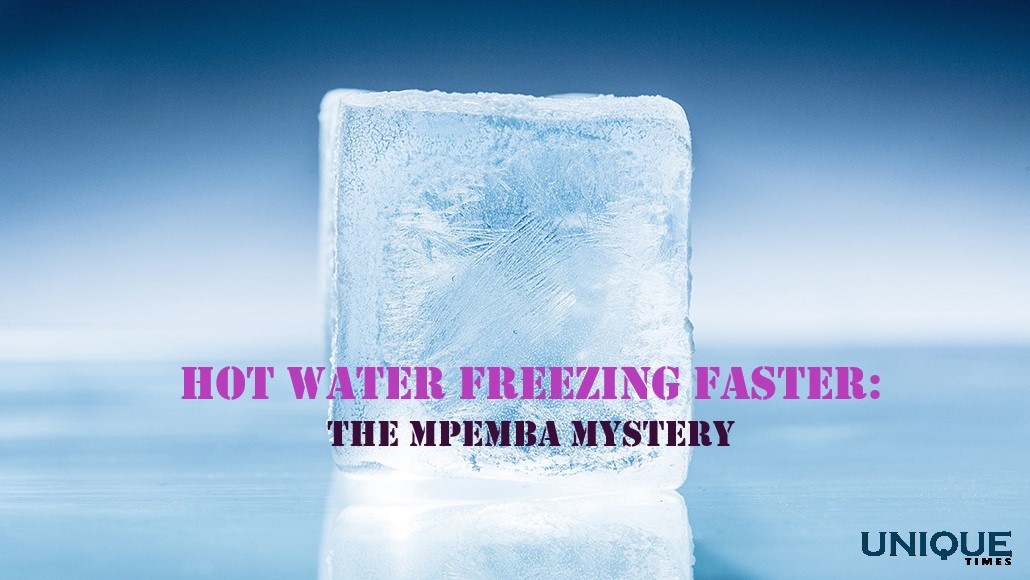The Counterintuitive Phenomenon: Why Hot Water Freezes Faster Than Cold Water

In the realm of science, there are instances when the expected doesn’t align with reality. One such perplexing phenomenon is the observation that hot water can freeze faster than cold water. In this blog post, we’ll delve into this counterintuitive concept, known as the Mpemba effect, and explore the factors that contribute to this fascinating occurrence.
- The Mpemba Effect: Defying Expectations Imagine placing two containers of water, one hot and one cold, in a freezer. Contrary to intuition, the hot water seems to freeze faster than the cold water. This observation, known as the Mpemba effect, has puzzled scientists and curious minds for centuries.
- Unraveling the Mystery: Factors at Play Several factors contribute to the Mpemba effect. One key factor is evaporation. Hot water exposed to the air loses more moisture through evaporation, reducing its volume and aiding faster cooling. This allows hot water to reach the freezing point more rapidly than cold water.
- Convection’s Role: Stirring the Story Convection, the process of heat transfer through the movement of fluids, also plays a role. When hot water is initially placed in the freezer, its upper layers cool quickly due to contact with the cold air. As the water cools, convection currents are established, causing warmer water from the center to rise. This continual mixing helps distribute the heat more evenly, potentially accelerating the freezing process.
- Thermal Conductivity: Fast-Tracking Freezing Another contributor is thermal conductivity—the ability of a substance to conduct heat. Hot water possesses higher thermal conductivity than cold water, meaning it can transfer heat more efficiently. This allows hot water to dissipate its heat to the surrounding environment more effectively, aiding faster cooling.
- Supercooling: A Twist in the Tale Cold water can sometimes experience supercooling, a state where it remains in liquid form even below its freezing point due to the absence of nucleation sites for ice crystals to form. Hot water, with its increased molecular activity, might have fewer chances of supercooling, making it more likely to crystallize and freeze sooner.
Conclusion:
The Mpemba effect challenges our conventional understanding of how temperature influences freezing. Through factors such as evaporation, convection, and thermal conductivity, hot water manages to defy our expectations and freeze faster than its colder counterpart. This phenomenon showcases the intricacies of heat transfer and the complex interplay of physical processes. As we continue to explore the boundaries of science, the Mpemba effect reminds us that the universe is full of surprises waiting to be unraveled.
Picture Courtesy: Google/images are subject to copyright







